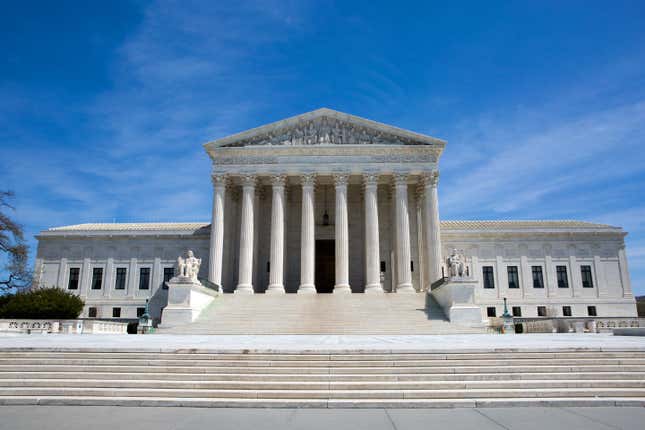
The Supreme Court on Monday issued a ruling that eliminates one barrier to suing law enforcement over wrongful prosecutions. But majority opinion doesn’t impact the onerous “qualified immunity” legal concept that allows cops to escape civil liability for misconduct on the job.
Monday’s ruling came in a case involving a New York man, Larry Thompson, who was arrested after refusing to let police enter his house after his now-wife’s sister called police to report abuse of the couple’s baby, the Washington Post reported. Officials determined that there had been no abuse and prosecutors dropped obstruction and resisting arrest charges, but only after Thompson was jailed for two days.
Thompson sued but lower courts issued conflicting rulings on whether or not his case could proceed. All three left-leaning Supreme Court justices were joined by conservatives Brett Kavanaugh, Amy Coney Barrett and Chief Justice John Roberts, in ruling that it could, striking down a lower court’s opinion that Thompson could only sue if a judge or prosecutors had established that he was innocent and why, rather than just dropping the charges against him.
From the Washington Post
The court, on a 6-to-3 vote, said the plaintiff does not need an acquittal or some statement of innocence from a judge or prosecutor to pursue a Fourth Amendment lawsuit under civil rights laws. The amendment protects against unlawful seizures.
“A plaintiff need only show that his prosecution ended without a conviction,” Justice Brett M. Kavanaugh wrote for the majority. That is only one of the hurdles a plaintiff must clear, though, and Kavanaugh characterized the ruling as a narrow one…
“The question of whether a criminal defendant was wrongly charged does not logically depend on whether the prosecutor or court explained why the prosecution was dismissed,” Kavanaugh wrote. “And the individual’s ability to seek redress for a wrongful prosecution cannot reasonably turn on the fortuity of whether the prosecutor or court happened to explain why the charges were dismissed.”
Kavanaugh’s opinion specified that cops and other law enforcement officials still have other protections from being sued, including qualified immunity, which shields government officials from being sued unless plaintiffs can prove that they violated “clearly established law”, meaning that the exact same conduct had already been ruled unconstitutional by a federal court.
Justices Samuel Alito, Neil Gorsuch and, of course, Clarence Thomas, dissented.

